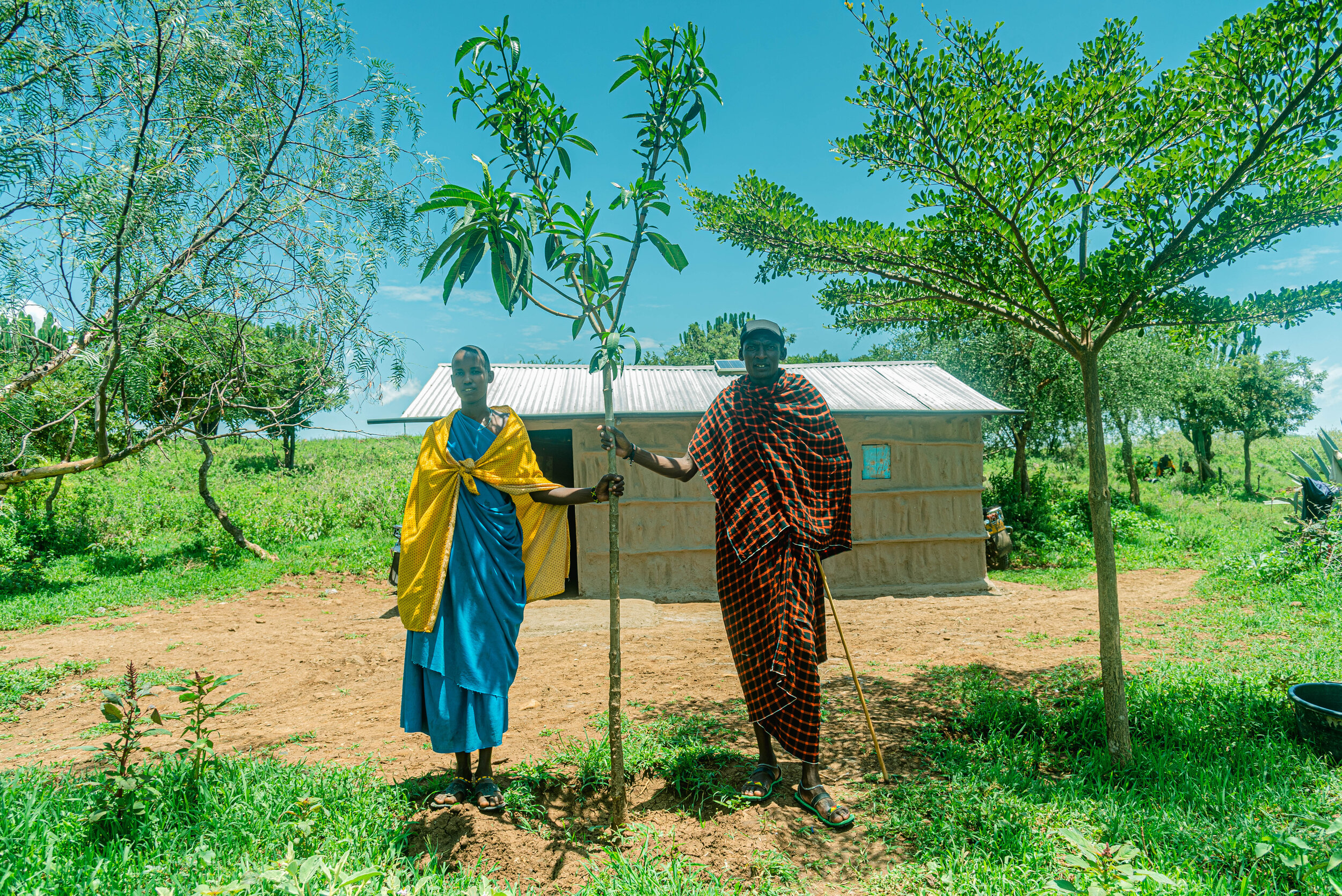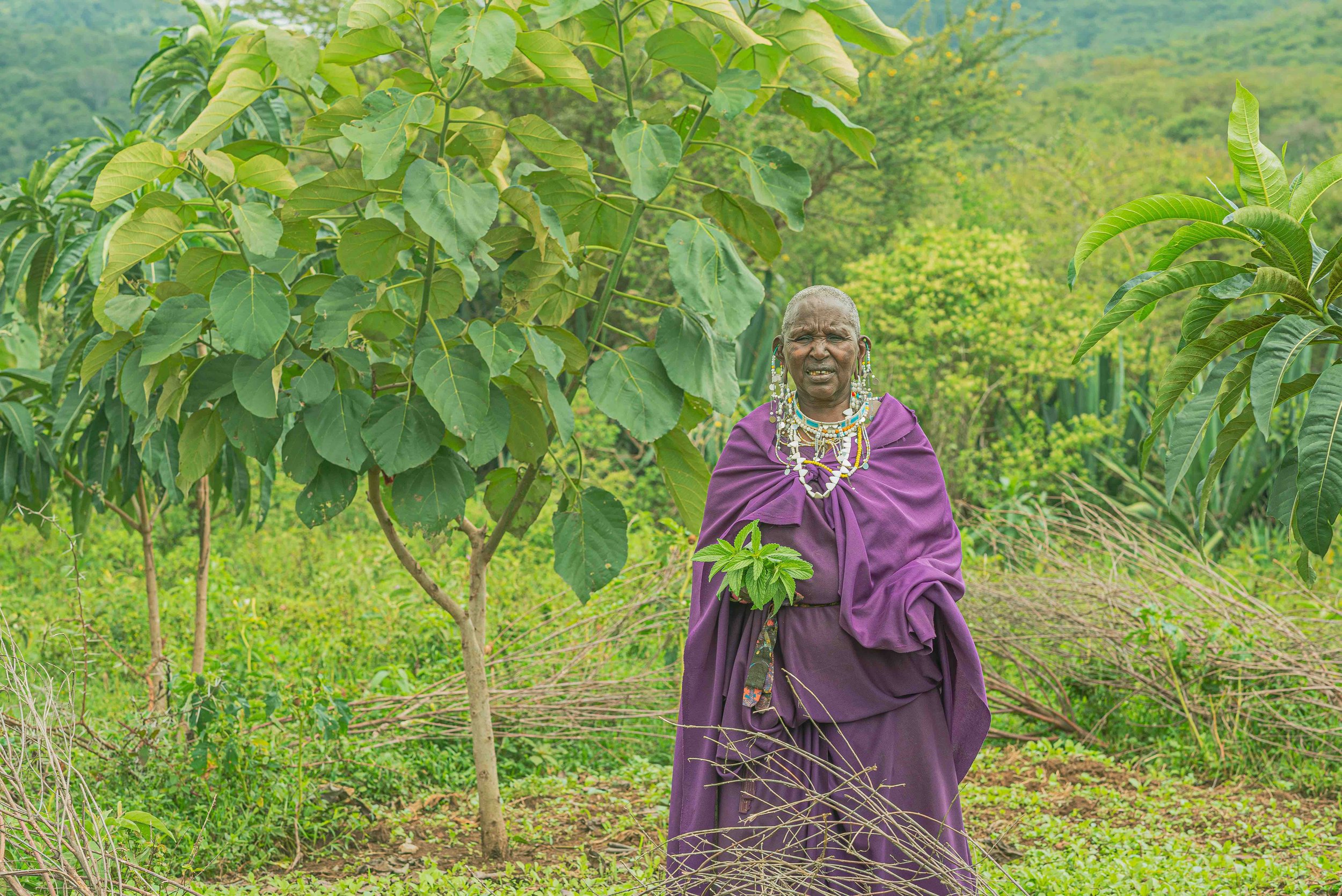
Environmental Conservation
Overview
Our Environmental Conservation Program works to combat critical environmental issues through tree planting and education. We work with both our women’s groups and environmental clubs at local schools to hold trainings and promote environmental wellness.
Tree Planting
WAEV works to plant various tree species though our women’s groups and environmental clubs at local schools. Deforestation has been a major issue in the areas work work in, and we have been working hard to combat it and work to educate on the importance of environmental protection. We select trees that are either native to Tanzania or are noninvasive, and suitable to grow in the harsh, unpredictable conditions. The trees we plant are relatively fast-growing, easy to harvest (i.e. do not have thorns), and offer positive externalities to the native ecosystem and the women who plant them.
Despite the challenging environmental conditions in the Monduli district, our tree planting project has been extremely successful, with the average tree survival rate at 75%. Since our foundation in 2019, we have planted over 200,000 trees!
Women’s Groups
Each women’s group participant initially receives 20 saplings to plant around her homestead. In addition, they receive foundational training to ensure their trees are successfully maintained and sustainably cultivated. This training is further supplemented by individualized check-ins and consultations throughout the program. To remain in a women’s group, a woman must effectively maintain at least 50% of her trees. Those who demonstrate this skill and commitment will have the opportunity to procure additional trees.
Currently we plant: Croton megalocarpus (Croton), Markhamia lutea (Markhamia), Rauvolfia caffra (Quinine), Gravellea robusta (Silky Oak), Cordia africana (East African Cordia), Persea americana (Avocado), Mangifera indica (Mango), and Moringa oleifera (Moringa).
Benefits
Mature trees directly provide many different resources for the women, their families, and the greater community. Women use certain trees to fuel fires for cooking, collect fruit from others to feed their families, and harvest timber to sell for profit. Other trees will remain in their homesteads, revitalizing the local ecosystem, improving soil health and reducing soil erosion. We have noticed that 20% of trees have become mature enough to provide shade—a vital resource for families in the hot Monduli region.
Environmental Outreach at Schools
In addition to our women’s groups, we also work with local schools to plant trees around their campuses. Through our program, school children and teachers receive trainings on how to plant and maintain trees and the importance of environmental conservation. From there, children maintain trees individually, enabling them to gain a sense of independence and responsibility. We have noticed many of these children have also begun planting trees around their homesteads and disseminating the knowledge they have learned to their families! So far, we have planted over 30,000 trees through local schools.
Environmental Clubs
As part of our outreach program, we have worked to introduce environmental clubs at local schools. These clubs work to promote awareness of environmental issues and take care of their schools’ campuses. We are so excited to see how interested children are to protect their lands—these individuals will surely be the environmental leaders of our future! To date, we have helped create 3 clubs with a total of 150 children and 3 teachers.
We look forward to working with more schools and establishing more clubs in the next year.
Our Future Plans
In the next year, our goal is to plant a total of 250,000 trees.
We aim to collaborate with more local schools and local governments to plant trees around campuses and community areas.







